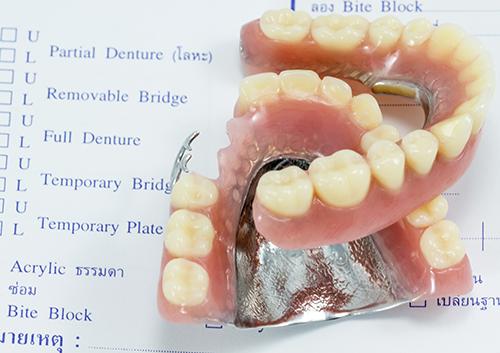My Blog

How do I avoid bad breath?
- posted: Jul. 24, 2024
At Salvatore Guerriero, DMD, we see a lot of patients who are concerned about their bad breath, also known as halitosis. So today we thought we would educate our patients Read More
When Is a “Cavity” Not a Cavity?
- posted: Jul. 17, 2024
Is this a trick question? After all, you probably already know quite a lot about cavities: It all begins when bacteria-filled plaque sticks to teeth and starts to attack enamel. How? Because Read More
Breaking Bad Oral Habits
- posted: Jul. 10, 2024
The effects of bad oral habits are something our team sees all too often. You might have bad oral habits that stem from childhood, possibly because your parents did not Read More
Fun Facts for the Fourth
- posted: Jul. 03, 2024
The Fourth of July is a great time to get together with friends and family members for BBQ, games, fireworks, and other celebrations in honor of our country’s independence. While Read More
What did the first dentures look like?
- posted: Jun. 26, 2024
Remember hearing about George Washington and his wooden choppers? Not his tools for cutting down cherry trees, but his false teeth. Actually, George’s teeth were made of ivory but were so Read More
How can veneers improve my smile?
- posted: Jun. 19, 2024
the doctor and our team at Salvatore Guerriero, DMD know your smile is an important part of your appearance; it can be a source of pride or embarrassment. Everyone deserves Read More
Find Out how Your Diet can Cause Cavities
- posted: Jun. 12, 2024
Sometimes food that’s good for your body isn’t necessarily the best for your teeth. the doctor and our team want you to know which healthy foods can harm your teeth Read More
Summer Treats for Healthy Teeth
- posted: Jun. 05, 2024
School’s out for the summer, and it’s great to have the kids home. After all, they deserve a break after all their hard work. And you want to keep their Read More
What are the benefits of visiting a dentist regularly?
- posted: May 29, 2024
Your regularly scheduled dental checkups with the doctor are not just meant to make your smile prettier and healthier. Your mouth’s health has an important impact on your overall physical Read More
Memorial Day
- posted: May 22, 2024
Memorial Day is not only a federal holiday in the United States, but it is a day of observance and remembrance of those who died in service. Originally known as Read More
What Are Dental Sealants?
- posted: May 15, 2024
You’re constantly playing defense. Your child spends two minutes in the morning and two minutes at night carefully brushing and flossing with a fluoride toothpaste. You make sure sugary and Read More
Improve your oral health with xylitol!
- posted: May 08, 2024
Xylitol tastes sweet, but unlike sugar, it is not converted to acid that can cause your teeth to decay. It’s a naturally occurring sweetener found in plants, fruits, and vegetables; Read More
Spring Cleaning
- posted: May 01, 2024
Just like that, it’s almost summertime. As the spring season ends, perhaps these lighter, brighter days are inspiring you to do a bit of last-minute spring cleaning. Or perhaps they’re Read More
Teeth Grinding: Not just a bad habit, but a dental concern
- posted: Apr. 24, 2024
Perhaps you don't even know you grind your teeth. Maybe a spouse or loved one woke you up in the middle of the night and made you aware of what Read More
Every Day is Earth Day
- posted: Apr. 17, 2024
During the early days of the environmental awareness movement, those who demonstrated against pollution, toxic chemicals, and the general public health were known as hippies. The early 1970s were a Read More
Can children be at risk for periodontal disease?
- posted: Apr. 10, 2024
You want to check all the boxes when you consider your child’s dental health. You make sure your child brushes twice daily to avoid cavities. You’ve made a plan for Read More
Nashua Smile Makers
Nashua, NH 03060
76 Allds Street
Nashua, NH 03060





















